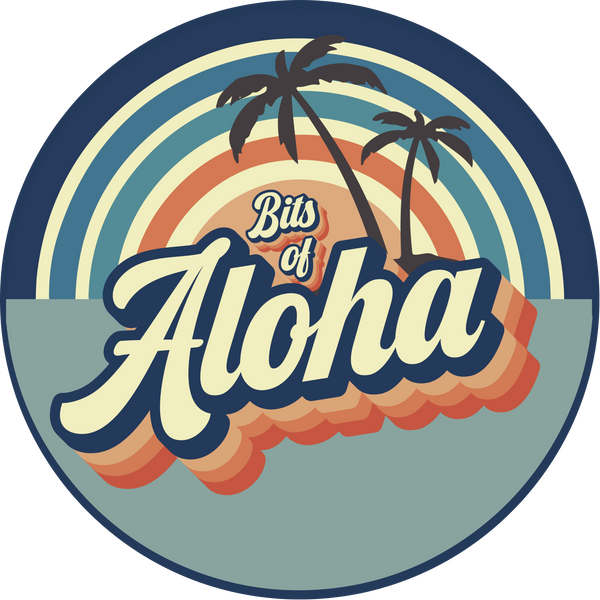
Elvis Presley’s Impact on Hawaii Tourism: Then and Now
Share
Hawaii’s reputation as a dreamy, tropical paradise was solidified in part due to the influence of one of America’s most iconic entertainers: Elvis Presley. Known as the "King of Rock and Roll," Elvis not only left a lasting impact on music but also played a significant role in shaping Hawaii’s tourism industry. From his beloved films to his legendary concerts, Elvis helped popularize Hawaii’s scenic beauty and cultural charm, sparking a wave of interest that would transform the islands’ economy and tourism landscape.
Elvis Presley’s Introduction to Hawaii
Elvis Presley’s connection to Hawaii began in the 1950s, but it was his appearances in movies like "Blue Hawaii" (1961) that truly captured the attention of audiences worldwide. Shot primarily on the island of Oahu, "Blue Hawaii" showcased the natural beauty of the islands, from Waikiki Beach to the famous Diamond Head. The film’s romanticized portrayal of Hawaii’s beaches, culture, and laid-back lifestyle resonated deeply with audiences, making it a critical and commercial success.
In the years following the release of "Blue Hawaii," tourism to the islands skyrocketed. Visitors sought to experience the idyllic landscapes and cultural charm they had seen on the silver screen. Hotels, resorts, and businesses quickly adapted to cater to the growing number of tourists inspired by Elvis’s Hawaiian films.
The Aloha from Hawaii Concert
Perhaps one of the most significant moments in Elvis’s relationship with Hawaii occurred in 1973, when he performed the "Aloha from Hawaii" concert. Broadcast live via satellite, the concert was the first of its kind, reaching an estimated 1.5 billion viewers across 40 countries. The event cemented Elvis’s connection to Hawaii and further boosted the islands’ appeal as a travel destination.
Elvis’s fondness for Hawaii went beyond mere performance. He often vacationed there, embracing the island’s culture and lifestyle. His affinity for the islands was not only evident in his music but also in his fashion choices, including his frequent use of aloha shirts, which became another popular aspect of Hawaiian culture promoted by his image.
Post-War Hawaii and the Tourism Boom
The tourism boom brought about by Elvis’s influence came during a critical period in Hawaii’s history. In the post-war era, Hawaii was transitioning from a primarily agrarian economy based on sugar and pineapple plantations to one that increasingly relied on tourism. Statehood in 1959 also contributed to Hawaii’s popularity, making it a more accessible and attractive destination for mainland Americans.
Elvis’s films and concerts played a considerable role in enhancing Hawaii’s global image. The combination of natural beauty, laid-back lifestyle, and aloha spirit became highly marketable, prompting significant investments in hotels, airlines, and infrastructure to accommodate the surge in visitors.
Elvis Presley’s Lasting Influence on Hawaiian Culture
Even decades after his death, Elvis Presley’s influence continues to be felt throughout Hawaii. The iconic "Blue Hawaii" soundtrack remains popular, and various locations featured in his movies have become must-visit attractions for fans. Sites like Hanauma Bay, the Coco Palms Resort, and Waikiki Beach still draw tourists eager to experience a piece of Elvis’s Hawaii.
In addition, tribute shows and Elvis-themed events continue to be held in Hawaii, celebrating the King’s enduring legacy. His impact on fashion, particularly the aloha shirt, remains evident, as countless tourists purchase these vibrant garments as souvenirs representing Hawaii’s relaxed, island-style aesthetic.
Modern-Day Tourism and Elvis’s Legacy
Today, Hawaii remains one of the world’s most popular tourist destinations. While many factors contribute to its appeal, Elvis Presley’s impact on the state’s tourism industry cannot be overstated. His films, music, and larger-than-life persona helped introduce Hawaii to the world, turning it into a must-see paradise for millions of visitors.
Additionally, Hawaii’s tourism industry has continued to build on the foundation laid during the post-war era. With marketing campaigns emphasizing the islands’ unique culture, natural beauty, and hospitality, the spirit of aloha that Elvis once promoted remains a cornerstone of the state’s appeal.
Conclusion
Elvis Presley’s influence on Hawaii’s tourism industry remains undeniable. From the post-war era to the present day, his contributions have left an indelible mark on the islands’ identity. As Hawaii continues to attract visitors from around the globe, the King’s legacy endures as part of the cultural fabric that makes these islands so enchanting.
